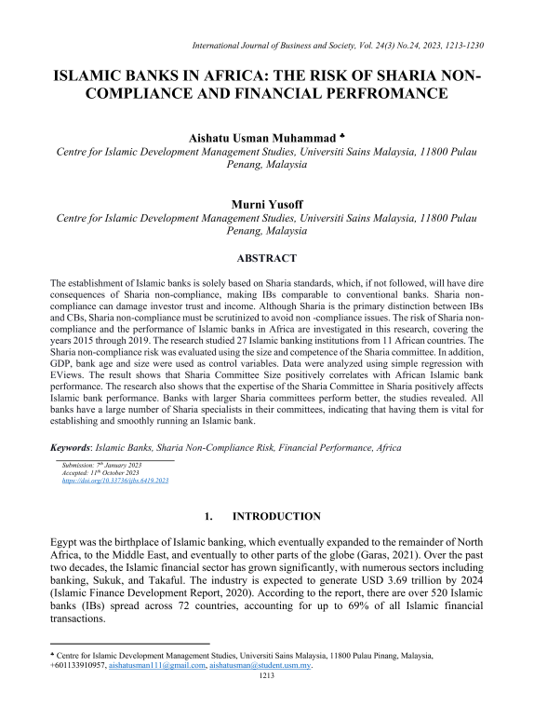ABSTRACT
The establishment of Islamic banks is solely based on Sharia standards, which, if not followed, will have dire consequences of Sharia non-compliance, making IBs comparable to conventional banks. Sharia non-compliance can damage investor trust and income. Although Sharia is the primary distinction between IBs and CBs, Sharia non-compliance must be scrutinized to avoid non -compliance issues. The risk of Sharia non-compliance and the performance of Islamic banks in Africa are investigated in this research, covering the years 2015 through 2019. The research studied 27 Islamic banking institutions from 11 African countries. The Sharia non-compliance risk was evaluated using the size and competence of the Sharia committee. In addition, GDP, bank age and size were used as control variables. Data were analyzed using simple regression with EViews. The result shows that Sharia Committee Size positively correlates with African Islamic bank performance. The research also shows that the expertise of the Sharia Committee in Sharia positively affects Islamic bank performance. Banks with larger Sharia committees perform better, the studies revealed. All banks have a large number of Sharia specialists in their committees, indicating that having them is vital for establishing and smoothly running an Islamic bank.






